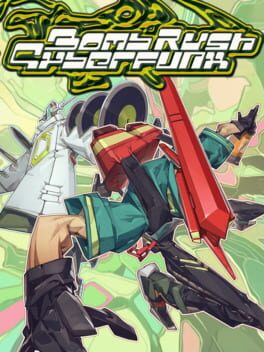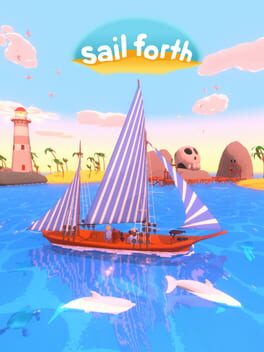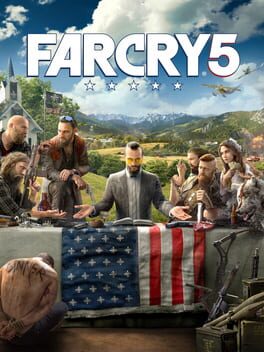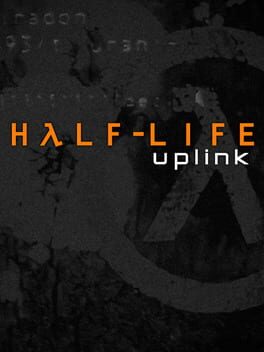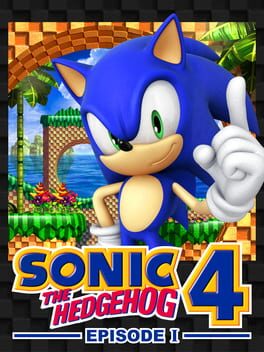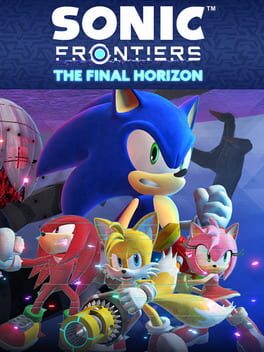RadamanTwo
40 reviews liked by RadamanTwo
Bomb Rush Cyberfunk
2023
Persona 3 Reload
2024
This review contains spoilers
It's pretty much undeniable at this point that this is Konami desperately trying to prove that "SILENT HILL IS BACK" - look, it's a free game with a looping, time-warping structure, just like PT! You loved PT, right? Well, this is just like that! Aren't you happy yet? And yes, there's a part of me that's genuinely happy to see Silent Hill back in any form; Ito and Yamaoka, the biggest holdovers from the series's past here, are still working at the top of their game, and there's undeniably some promise.
And yet.
There's a tendency in terms of games criticism to consider "walking simulators" as something lesser, and I don't quite agree with that - sometimes the best way to tell a story in an interactive form is from a spectator's point of view. There is nothing wrong with The Short Message being a "walking simulator"; the same could be said of PT, and I still hold that as one of the best works of short-form fiction in all of gaming. There's nothing wrong with the themes it tackles, either, or its focus on depression, anxiety, and suicide. The issue is the execution of those ideas.
Silent Hill: The Short Message wants to be a film - that's plain to see from the countless dolly-zoom shots it uses in its cutscenes, let alone in its use of FMV. In trying to be an interactive film, though, it becomes so linear and direct that it undercuts its own medium's best abilities. The story of something like Gone Home comes directly from the way you experience and unravel it, from the choices you make in putting the pieces together, from the places where you choose to linger. That, in itself, is the point of a walking sim: experiencing space and absence rather than clear narrative, allowing atmosphere and architecture to carve out a mood. In The Short Message, you're supposed to move from one point to the other to experience it exactly how the developers want you to with no other interpretation, and there's nothing to reward you for lingering. It's a work stuck in a weird limbo between genres; too linear and unambiguous to be experimental, but too simplistic and sparse to work well as a conventional game (god forbid I mention the fact that its final gameplay loop is lifted almost directly from Slender).
Those issues, though, are all secondary to the game's writing. Admittedly, The Short Message's roughest parts are in its first loop, where its attempts to discuss social media pressure and cyberbullying come off as painfully blunt "kids these days and their INSTAGRAMS" moralizing written without any real understanding of how the current generation engages with the internet. As it goes on, it opens itself up to quieter, darker touches, working to dig deeper than that "what if phone bad" simplicity as it builds to a legitimately harrowing depiction of abuse and neglect in its final loop. But even as it manages to improve from that first impression, there's a bluntness to it that doesn't quite click with me - and, more importantly, doesn't quite click with its chosen franchise.
Silent Hill is not a conventional narrative franchise. Even compared to other "auteur" game series like Metal Gear Solid and the Remedyverse, its interests fall closer to art-house and experimental cinema than they do to the typical cinematic reference points, with directors like Lynch and Cronenberg being held up from the start as significant inspirations. There are things in Silent Hill that are never explained, doppelgangers and impossible landscapes, and their purpose is to complicate any single easy reading of the story; its stories and their themes lean heavily on metaphor, built on the principle that suggesting what's going on below the surface is the scariest way to convey something. The Abstract Daddy from SH2 is terrifying not because the game tells you what it is - it's because it gives you the outline of something horrible before releasing your hand, trusting you to take that step into the void yourself.
The Short Message doesn't trust you to take that step. It's dealing with meaningful ideas, but that meaning is always one-to-one, spelled out in a way that leaves no room for ambiguity. Continuing its story requires you to read texts that tell you exactly what that story is about, impressing upon you that This Is Important; any suggestion has gone out the window by the time you're directly winding your way through characters' memories, revealing that the story's monster is a stand-in for one very specific character. Story isn't something that intertwines with theme into one inextricable entity; it's a pure, blunt vehicle for theme.
Of course, there's going to be an argument that this criticism is just being too hard. This is saying something important, right? Shouldn't we be applauding this work for making a statement? That doesn't ring true to me. At the end of the day, The Short Message feels like it wears its themes as a shield, a way to deflect any potential criticism about its own lack of sensitivity. It doesn't matter that its treatment of suicide boils down to "just text your friends sometimes" rather than exploring underlying issues with mental health, or that its execution of those issues requires the player to watch the main character leap off a building to her death several separate times. It doesn't matter that it spends more time telling the player it's being empathetic than it does actually being empathetic. It doesn't matter that it doesn't trust you to interpret its protagonist's experiences on its own. All that matters is that the IP you love is back, and that the people who are making it definitely understand it - or some simplified version of it, at least.
And yet.
There's a tendency in terms of games criticism to consider "walking simulators" as something lesser, and I don't quite agree with that - sometimes the best way to tell a story in an interactive form is from a spectator's point of view. There is nothing wrong with The Short Message being a "walking simulator"; the same could be said of PT, and I still hold that as one of the best works of short-form fiction in all of gaming. There's nothing wrong with the themes it tackles, either, or its focus on depression, anxiety, and suicide. The issue is the execution of those ideas.
Silent Hill: The Short Message wants to be a film - that's plain to see from the countless dolly-zoom shots it uses in its cutscenes, let alone in its use of FMV. In trying to be an interactive film, though, it becomes so linear and direct that it undercuts its own medium's best abilities. The story of something like Gone Home comes directly from the way you experience and unravel it, from the choices you make in putting the pieces together, from the places where you choose to linger. That, in itself, is the point of a walking sim: experiencing space and absence rather than clear narrative, allowing atmosphere and architecture to carve out a mood. In The Short Message, you're supposed to move from one point to the other to experience it exactly how the developers want you to with no other interpretation, and there's nothing to reward you for lingering. It's a work stuck in a weird limbo between genres; too linear and unambiguous to be experimental, but too simplistic and sparse to work well as a conventional game (god forbid I mention the fact that its final gameplay loop is lifted almost directly from Slender).
Those issues, though, are all secondary to the game's writing. Admittedly, The Short Message's roughest parts are in its first loop, where its attempts to discuss social media pressure and cyberbullying come off as painfully blunt "kids these days and their INSTAGRAMS" moralizing written without any real understanding of how the current generation engages with the internet. As it goes on, it opens itself up to quieter, darker touches, working to dig deeper than that "what if phone bad" simplicity as it builds to a legitimately harrowing depiction of abuse and neglect in its final loop. But even as it manages to improve from that first impression, there's a bluntness to it that doesn't quite click with me - and, more importantly, doesn't quite click with its chosen franchise.
Silent Hill is not a conventional narrative franchise. Even compared to other "auteur" game series like Metal Gear Solid and the Remedyverse, its interests fall closer to art-house and experimental cinema than they do to the typical cinematic reference points, with directors like Lynch and Cronenberg being held up from the start as significant inspirations. There are things in Silent Hill that are never explained, doppelgangers and impossible landscapes, and their purpose is to complicate any single easy reading of the story; its stories and their themes lean heavily on metaphor, built on the principle that suggesting what's going on below the surface is the scariest way to convey something. The Abstract Daddy from SH2 is terrifying not because the game tells you what it is - it's because it gives you the outline of something horrible before releasing your hand, trusting you to take that step into the void yourself.
The Short Message doesn't trust you to take that step. It's dealing with meaningful ideas, but that meaning is always one-to-one, spelled out in a way that leaves no room for ambiguity. Continuing its story requires you to read texts that tell you exactly what that story is about, impressing upon you that This Is Important; any suggestion has gone out the window by the time you're directly winding your way through characters' memories, revealing that the story's monster is a stand-in for one very specific character. Story isn't something that intertwines with theme into one inextricable entity; it's a pure, blunt vehicle for theme.
Of course, there's going to be an argument that this criticism is just being too hard. This is saying something important, right? Shouldn't we be applauding this work for making a statement? That doesn't ring true to me. At the end of the day, The Short Message feels like it wears its themes as a shield, a way to deflect any potential criticism about its own lack of sensitivity. It doesn't matter that its treatment of suicide boils down to "just text your friends sometimes" rather than exploring underlying issues with mental health, or that its execution of those issues requires the player to watch the main character leap off a building to her death several separate times. It doesn't matter that it spends more time telling the player it's being empathetic than it does actually being empathetic. It doesn't matter that it doesn't trust you to interpret its protagonist's experiences on its own. All that matters is that the IP you love is back, and that the people who are making it definitely understand it - or some simplified version of it, at least.
Silent Hill: The Short Message is the first Silent Hill game I've ever played. I know a decent amount about the original four and PT, but I have never had the opportunity to actually play through them.
With that being said, the beginning 20 minutes of the game almost lost me. I felt like the game was trying to spoon feed the message of the overall experience so quickly and without any ounce of subtlety, which, is a big part of what I know the original four games are pretty good with.
Though as I kept playing, the interactions between the characters, the music, and some of the environmental design, were actually doing a decently well job of getting me invested. There was a specific section towards the end of the game that I won't spoil that genuinely had me like "Damn, that's pretty fucked up"
The gameplay had me pretty uninterested though, as it's a lot of "Click on the interactable, read it, then move on." There's also exactly one puzzle in the entire game, and I solved it by guessing. It felt like this game needed at least a couple more, to break up the loop of walking from note to note, then the occasional chase sequence.
Overall, the message of the game is nothing you haven't already seen before, and has been done a lot better. But what's here actually felt like they were genuinely taking it seriously. Like testing the waters for a brand new game in the future. I do feel they did get the feeling of Silent Hill down.
And as long as they figure out what works and what doesn't, I think there's a good possibility for the next Silent Hill game to be really solid.
With that being said, the beginning 20 minutes of the game almost lost me. I felt like the game was trying to spoon feed the message of the overall experience so quickly and without any ounce of subtlety, which, is a big part of what I know the original four games are pretty good with.
Though as I kept playing, the interactions between the characters, the music, and some of the environmental design, were actually doing a decently well job of getting me invested. There was a specific section towards the end of the game that I won't spoil that genuinely had me like "Damn, that's pretty fucked up"
The gameplay had me pretty uninterested though, as it's a lot of "Click on the interactable, read it, then move on." There's also exactly one puzzle in the entire game, and I solved it by guessing. It felt like this game needed at least a couple more, to break up the loop of walking from note to note, then the occasional chase sequence.
Overall, the message of the game is nothing you haven't already seen before, and has been done a lot better. But what's here actually felt like they were genuinely taking it seriously. Like testing the waters for a brand new game in the future. I do feel they did get the feeling of Silent Hill down.
And as long as they figure out what works and what doesn't, I think there's a good possibility for the next Silent Hill game to be really solid.
Sail Forth
2022
"Had Mao died in 1956, his achievements would have been immortal. Had he died in 1966, he would still have been a great man but flawed. But he died in 1976. Alas, what can one say?" Chinese communist politician Chen Yun famously uttered these words on reflecting the legacy of Chairman Mao.
What the hell does that have to do with a windwaker inspired sailing game? Well, much like how Chen lamented Maos tarnishing of his own memory by slowly outweighing his contributions to chinese independence and victory over the nationalists in the civil war with ill fated economic and social policies, Sail Forth ruins its initial positive impression with boredom and frustration.
"Had Sail Forth ended at the 6 hour mark, it would have been my GOTY, if it had ended at the 12 hour mark it would have gone down as a good, if flawed game, but it ended at the 18 hour mark, alas, what can one say?" - Me probably
Its hard to be too tough on the game, without getting too patronizing it is a labour of love by a very small team (i think it might be a solo project even) and honestly for the first couple of hours is a very charming little ship game. You feel a strong sense of progression as you go from a 2 person rowboat to a fleet of 4 brigantines raining lead on pirates in the high seas. Unfortunately that progression plateaus really quickly and the act of photographing, fighting, fishing and doing inane fetchquests gets old real fast.
Unfortunately when you make a (albeit not seamless) open world with a very small indie team you are going to have to rely on a whole lot of procedural generation, radiant quests etc, which again contributes to the sameyness of it all. On the character side of things, the game looks pretty, the cel shading cartoony graphics appeal and the music is good. Unfortunately due to the proc gen your actual crew is boring and the written characters all suffer from overwritten dialogue I ended up just mostly skipping over cause it was just too much. This writing is what people who dont like spiritfarer's writing think that game is like.
Ultimately I think the main feeling I have finishing Sail Forth is not even of anger but just relief that I am finally done with it, which isnt really a good sign, usually. Ill reiterate that the game does have some good in it, its attempt to marry goal oriented main quest progression with a more relaxed free form "chill game" screws over the former and probably the latter as well.
What the hell does that have to do with a windwaker inspired sailing game? Well, much like how Chen lamented Maos tarnishing of his own memory by slowly outweighing his contributions to chinese independence and victory over the nationalists in the civil war with ill fated economic and social policies, Sail Forth ruins its initial positive impression with boredom and frustration.
"Had Sail Forth ended at the 6 hour mark, it would have been my GOTY, if it had ended at the 12 hour mark it would have gone down as a good, if flawed game, but it ended at the 18 hour mark, alas, what can one say?" - Me probably
Its hard to be too tough on the game, without getting too patronizing it is a labour of love by a very small team (i think it might be a solo project even) and honestly for the first couple of hours is a very charming little ship game. You feel a strong sense of progression as you go from a 2 person rowboat to a fleet of 4 brigantines raining lead on pirates in the high seas. Unfortunately that progression plateaus really quickly and the act of photographing, fighting, fishing and doing inane fetchquests gets old real fast.
Unfortunately when you make a (albeit not seamless) open world with a very small indie team you are going to have to rely on a whole lot of procedural generation, radiant quests etc, which again contributes to the sameyness of it all. On the character side of things, the game looks pretty, the cel shading cartoony graphics appeal and the music is good. Unfortunately due to the proc gen your actual crew is boring and the written characters all suffer from overwritten dialogue I ended up just mostly skipping over cause it was just too much. This writing is what people who dont like spiritfarer's writing think that game is like.
Ultimately I think the main feeling I have finishing Sail Forth is not even of anger but just relief that I am finally done with it, which isnt really a good sign, usually. Ill reiterate that the game does have some good in it, its attempt to marry goal oriented main quest progression with a more relaxed free form "chill game" screws over the former and probably the latter as well.
Far Cry 5
2018
Discards a lot of what I enjoyed about the other games to appeal to a wider audience but wishing for a PS2-era AC game (or even AC4/FA) in 2023-vision was always a pipe dream. What we got is still a great time with decent build variety which is honestly one of the most important things to get right for these.
I do miss the more unfeeling, utilitarian approach to the older games where bosses were usually just massive health pools that softlock shit builds where here there's a lot more things you can take advantage of like the stagger system. This new system plus the reliance on long wind-up animations for some of the more major bosses does make the Sekiro comparison seem fair, you can tell a huge difference in design philosophy between this and 4/FA though there are plenty of homages and ideas from the older games (surprise multi-AC fights, music changing in menus as you progress).
FromSoftware is a very different company now than it was 10 years ago. Less J-rock and 10-second missions, more refined and well-made. I still prefer the former but I can absolutely get behind the latter and I'm very excited to see what they'll change in the next game if they get to make it.
I do miss the more unfeeling, utilitarian approach to the older games where bosses were usually just massive health pools that softlock shit builds where here there's a lot more things you can take advantage of like the stagger system. This new system plus the reliance on long wind-up animations for some of the more major bosses does make the Sekiro comparison seem fair, you can tell a huge difference in design philosophy between this and 4/FA though there are plenty of homages and ideas from the older games (surprise multi-AC fights, music changing in menus as you progress).
FromSoftware is a very different company now than it was 10 years ago. Less J-rock and 10-second missions, more refined and well-made. I still prefer the former but I can absolutely get behind the latter and I'm very excited to see what they'll change in the next game if they get to make it.
Half-Life: Uplink
1999
Strange as this may sound, this game would be so much better if it literally just had a different title. "Sonic 4" holds so many more implications than what this game actually is. If the game was advertised as the small, low-budget, side-game that it is, then I feel like it would be much more appreciated. Not exactly beloved, but at least accepted. But instead the game is presented as the sequel to Sonic Goddamn 3. Imagine if Super Mario Run was titled and advertised as "Super Mario Bros 5" and released on consoles, I feel like that game would be much more hated. To me, Sonic 4 will always be a mediocre spinoff and nothing more.
